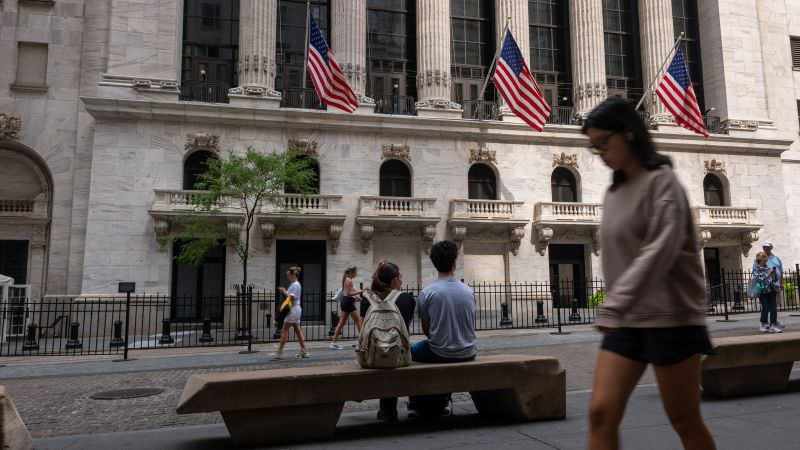Wall Street is experiencing a shift in atmosphere as strong corporate earnings have led to stocks reaching repeated record highs in 2024. Despite stubborn inflation, investors are scaling back their expectations for how many times the Federal Reserve will cut rates this year. However, recent cooling inflation data has given Wall Street confidence that the Fed will finally cut interest rates in September, opening up more opportunities for gains beyond just the dominant Big Tech stocks. The Personal Consumption Expenditures price index, the Fed’s preferred inflation gauge, slowed to 2.5% for the 12 months ended in June, signaling a continued easing of inflation from its four-decade high. The Dow surged 654 points on Friday, with the S&P 500 and Nasdaq also seeing gains.
Economic data has remained strong, with the economy expanding at a robust 2.8% annualized rate in the second quarter, surpassing economists’ expectations. This, along with the slowdown in inflation, has raised hopes that the Federal Reserve could control prices without causing a recession, a feat achieved only once since the 1990s. Investors are eagerly awaiting the Fed’s next moves at its upcoming policy meeting, where the central bank is expected to maintain steady rates. Despite the Fed penciling in only one rate cut for this year, traders are betting on up to three rate cuts.
While prospects for rate cuts are typically positive for stocks, indicating an environment where higher borrowing rates do not burden companies’ balance sheets, the stock market experienced a sell-off on Wednesday. The decline was attributed to investors shedding shares of tech stalwarts that have dominated the market for the past two years, causing major indexes to fall. Tech companies currently represent 32% of the total market capitalization, the highest level since the late 1990s. A slow start to the earnings season for tech companies has added to their decline.
Small-cap stocks have recently benefited from the possibility of lower rates, as they tend to perform well when the Federal Reserve eases high borrowing rates. The Russell 2000 index, tracking small-cap stocks, has significantly outperformed the S&P 500 this month. Investors are also focusing on other market areas poised to benefit from rate cuts, such as homebuilder stocks, anticipating that cooling inflation will enable the Fed to reduce rates and ease the tight housing market. Interest rates have kept homeowners from selling their homes, driving prices to record highs.
Investors have expressed concerns that the market’s gains are dependent on a few tech stocks, making it vulnerable to pullbacks if these stocks falter. The recent rise in small-cap stocks has provided optimism that the market rally will broaden. However, signs indicate that the pain in tech shares may not be over, with steep losses following lackluster quarterly results from tech giants like Alphabet and Tesla. Investors are becoming impatient with companies spending large amounts on artificial intelligence without clear revenue gains, despite releasing consumer tools and AI models.
As the AI arms race intensifies, companies are unlikely to reduce their AI investments, although the timing of when these investments will translate into financial gains remains uncertain. Tech firms have focused on AI cost-saving measures and efficiency improvements, but generating revenue remains a challenge. With ongoing investments in AI, Alphabet CEO Sundar Pichai emphasized the risk of underinvesting compared to overinvesting. The market may experience fluctuations as stocks settle after the trading day, indicating a shifting landscape for investors.













